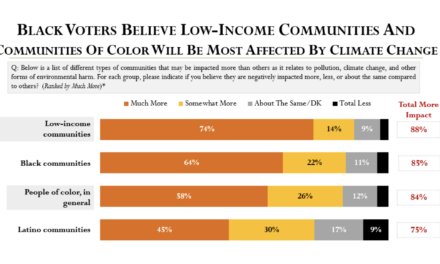Original Target Boycott Organizers Speak Out: ‘This Is Our Movement’
Three of the original organizers behind the national Target boycott say they won’t be sidelined, erased, or co-opted—especially not by corporate maneuvers or high-profile figures with no ties to their movement.

By Stacy M. Brown | BlackPressUSA.com Senior National Correspondent
Three of the original organizers behind the national Target boycott say they won’t be sidelined, erased, or co-opted—especially not by corporate maneuvers or high-profile figures with no ties to their movement. On the Black Press of America’s Let It Be Known News show, Nekima Levy Armstrong, civil rights attorney and founder of the Racial Justice Network; Jaylani Hussein, executive director of CAIR-Minnesota; and Monique Cullars-Doty, co-founder of Black Lives Matter Minnesota, spoke candidly about how their effort to hold Target accountable has been misrepresented, overshadowed, and—most recently—dismissed by the very company they’re boycotting. “This movement started here, in the Twin Cities,” said Levy Armstrong. “We launched the boycott on February 1, the first day of Black History Month, after Target rolled back its diversity, equity, and inclusion programs. That announcement came just days after Donald Trump returned to power and launched his renewed attack on DEI.”
According to Levy Armstrong, Target made a $2 billion pledge in 2021 to support Black-owned businesses, improve the Black shopper experience, and invest in Black employees. “They said it with their chest, and now they want to quietly walk it back? Not on our watch,” she said. “And then instead of speaking to us—the people who live and organize three miles from where George Floyd was murdered—they reached out to someone who admitted he wasn’t even participating in the boycott — Rev. Al Sharpton.” Sharpton has confirmed that he was not part of the boycott, yet Target reportedly initiated discussions with him, omitting the local leaders who originally launched and sustained the movement. “They made a Hail Mary pass,” said Cullars-Doty. “They were hoping Sharpton would catch it and run it into the end zone for them. But we’re the ones who’ve been doing the work, and they know it. That’s why this boycott was always meant to be indefinite—not 40 days, not a fast, but until Target makes good on its promises and accounts for its role in fueling systemic harm.”
Hussein said the company’s move to engage Sharpton and ignore the grassroots leaders is a classic case of corporate divide and conquer. “They are trying to fracture our unity, plain and simple. But this boycott is working,” Hussein stated. “Foot traffic is down. Stock is down. And our community has proven that we don’t need to invest in companies that invest in our oppression.” Cullars-Doty and Levy Armstrong also pointed to Target’s historical funding of the Hennepin County Attorney’s Office under Amy Klobuchar and Mike Freeman—an office that oversaw a 600% rise in Black male incarceration, they said, and worked together with law enforcement, often using surveillance technology supported by Target. “They didn’t just walk away from DEI,” Cullars-Doty said. “They’ve been fueling injustice from behind the scenes for years. Our community suffered the brunt of that. We lived through the uprising. We buried our people. We fought in the streets. And now they want to pretend this is just about shelf space? No, it’s about justice.”
Levy Armstrong was firm, responding to Roland Martin of the Black Star Network’s warning that he would call out anyone “cutting side deals” with Target rather than working through a unified coalition. “I know he’s not talking about us,” she said. “We haven’t cut any side deals, and we never will. We haven’t heard a word from Target. And if they did reach out, they know we’re not budging on our demands. Our community here in Minnesota—and our national allies—know who we are and what we stand for.” She declined a recent invitation to join a new “organizing committee” alongside Nina Turner, Tamika Mallory, and Pastor Jamal Bryant. “I’ve already been down that road,” Levy Armstrong said. “My trust was violated once. I’m not signing on to anything that sidelines the people who laid the foundation for this movement.” The trio said they’ve been working side-by-side with the Minnesota Spokesman Recorder newspaper, and attributed some of their early success to the newspaper’s publisher, Tracey Williams-Dillard, and the late journalist and activist Mel Reeves.
Hussein said the controversy surrounding the boycott has only reinforced the importance of staying the course. “Target is scared to engage us directly,” Hussein asserted. “They know we’ll hold them accountable to their own words. They want to rewrite history and paint this as a short-term PR issue. But we’re here for the long haul.” Cullars-Doty added that the boycott has revealed deeper, systemic truths that many in the public didn’t previously know. “This is bigger than DEI. It’s about criminal justice, mass incarceration, racial surveillance, and police partnerships. The boycott pulled back the curtain—and now Target’s trying to close it again,” she said. And the organizers made it clear: this fight is far from over. “We’ve been consistent. We’re grounded. And we’re not going anywhere,” said Levy Armstrong. “We’re doing this for our people. And we’re not letting anyone take that from us.”









